The Avengers wasn't always a Marvel franchise - then New Avengers changed everything
Looking back at the revolutionary New Avengers revamp that led to the MCU
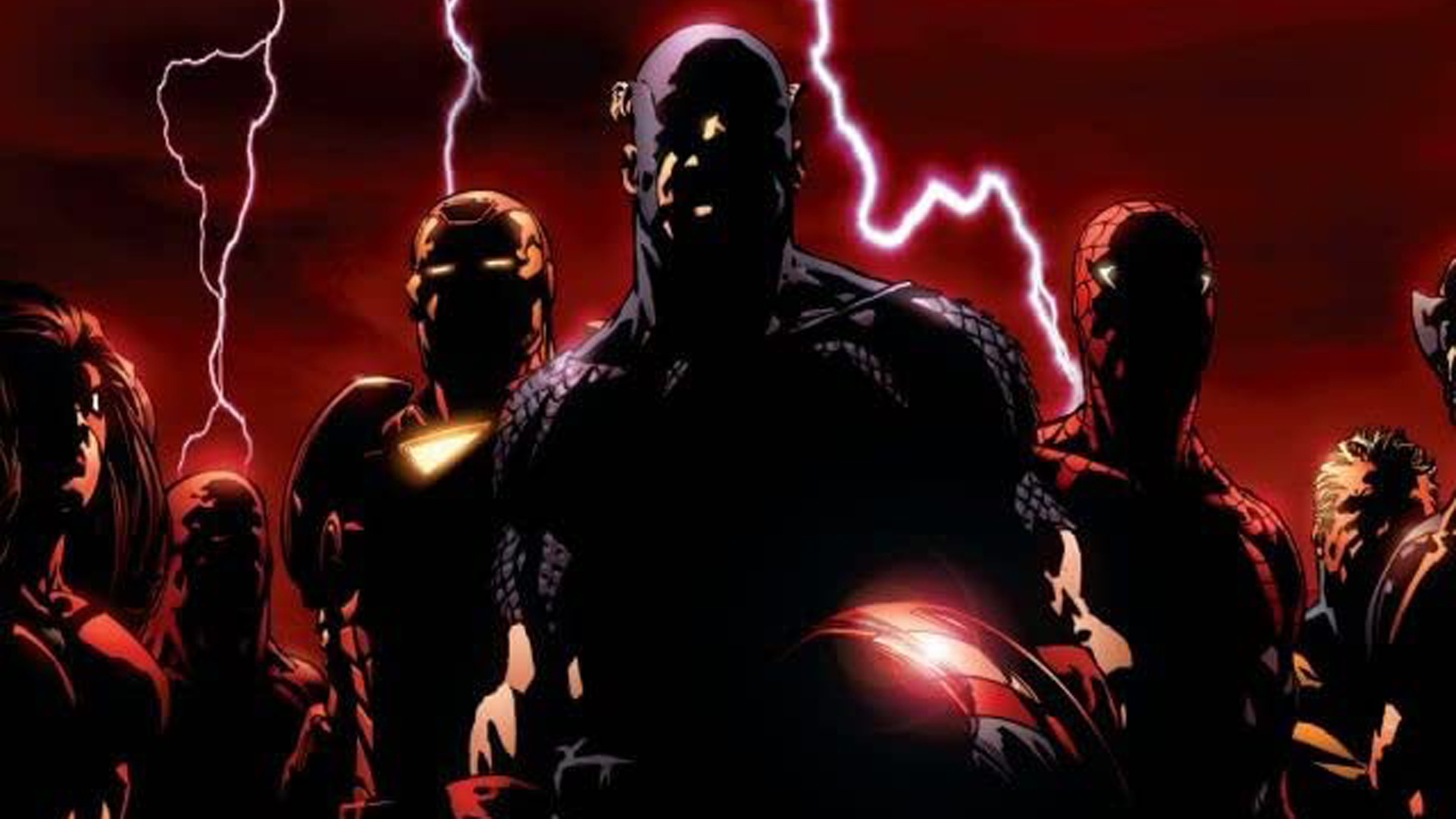
The word "franchise" is thrown around a lot in comic books circles, but if there's one property over the last 20 years that has evolved in a way that has genuinely earned the "franchise" label, it's Marvel Comics' Avengers.
Now considered the top Marvel property, the Avengers are about to undergo a high-profile relaunch in June with a rebooted title, a new roster, and a new creative team.
While always a high-profile title, The Avengers wasn't always a franchise.
And it certainly wasn't a flagship.
That's more of a subjective term that in Marvel terms once belonged indisputably to the X-Men in the '90s. And if there can only be one flagship, there'd likely be a debate between Spider-Man and the Avengers as Marvel's flagship franchise.
But either way, in December 2004 the Avengers was neither, until Marvel launched a complete overhaul of the existing Avengers comic book series, giving the title to the writer who had launched the publisher's Ultimate universe four years earlier, Brian Michael Bendis.
Now we're looking back at interviews from several years ago with Bendis himself, Kurt Busiek, Tom Brevoort, and others to shed some light on how the Avengers got to the top of the Marvel heap ahead of the team's upcoming June reboot.
Get the best comic news, insights, opinions, analysis and more!
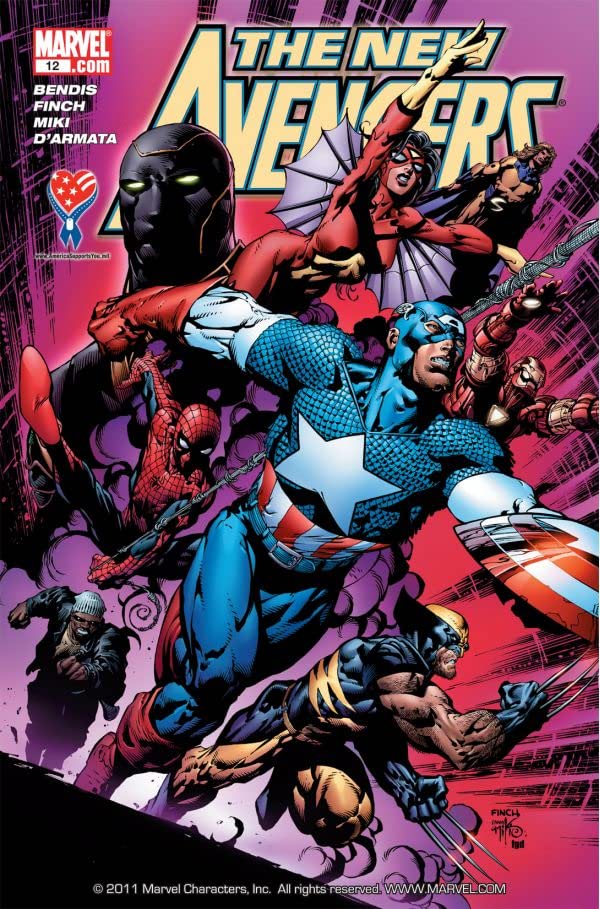
"That was a major turning point in not just Avengers history, but Marvel Comics history," said long-time Marvel writer Dan Slott, who wrote both Mighty Avengers and Avengers: The Initiative. "The team that took the name Avengers [in 2004], with Wolverine and Spider-Man and the biggest guns and Brian's favorite characters – that became the flagship book not just for Marvel, but that became the flagship book for comics. And it stayed there for so long. That speaks to the genius behind that move."
As controversial as the Avengers relaunch was at the time, Slott isn't the only one who recognizes its success. In any given month there are several different Avengers comic book series hitting shelves, with one or two usually among the top-sellers like clockwork.
And since that 2004 revamp of the franchise, the Avengers titles have played a central role in almost every one of the publisher's major events - from 2006's Civil War all the way through to 2022's AXE (which stands for Avengers-X-Men-Eternals) Judgment Day.
Although it may be considered a no-brainer these does, it wasn't until the 2004 relaunch that an Avengers title routinely made the Top 10 sales charts. But with 'Avengers Dissassembled' and into New Avengers, it became a staple.
"Once that happened, and once the word 'franchise' started getting bandied around in meetings, I knew it was only a matter of time before there were other teams and spin-offs," said Bendis in 2009. "We just had to make sure we didn't move too fast and that we continued to treat the Avengers franchise like the A-list team I always imagined it should be."
What makes the Avengers unique?
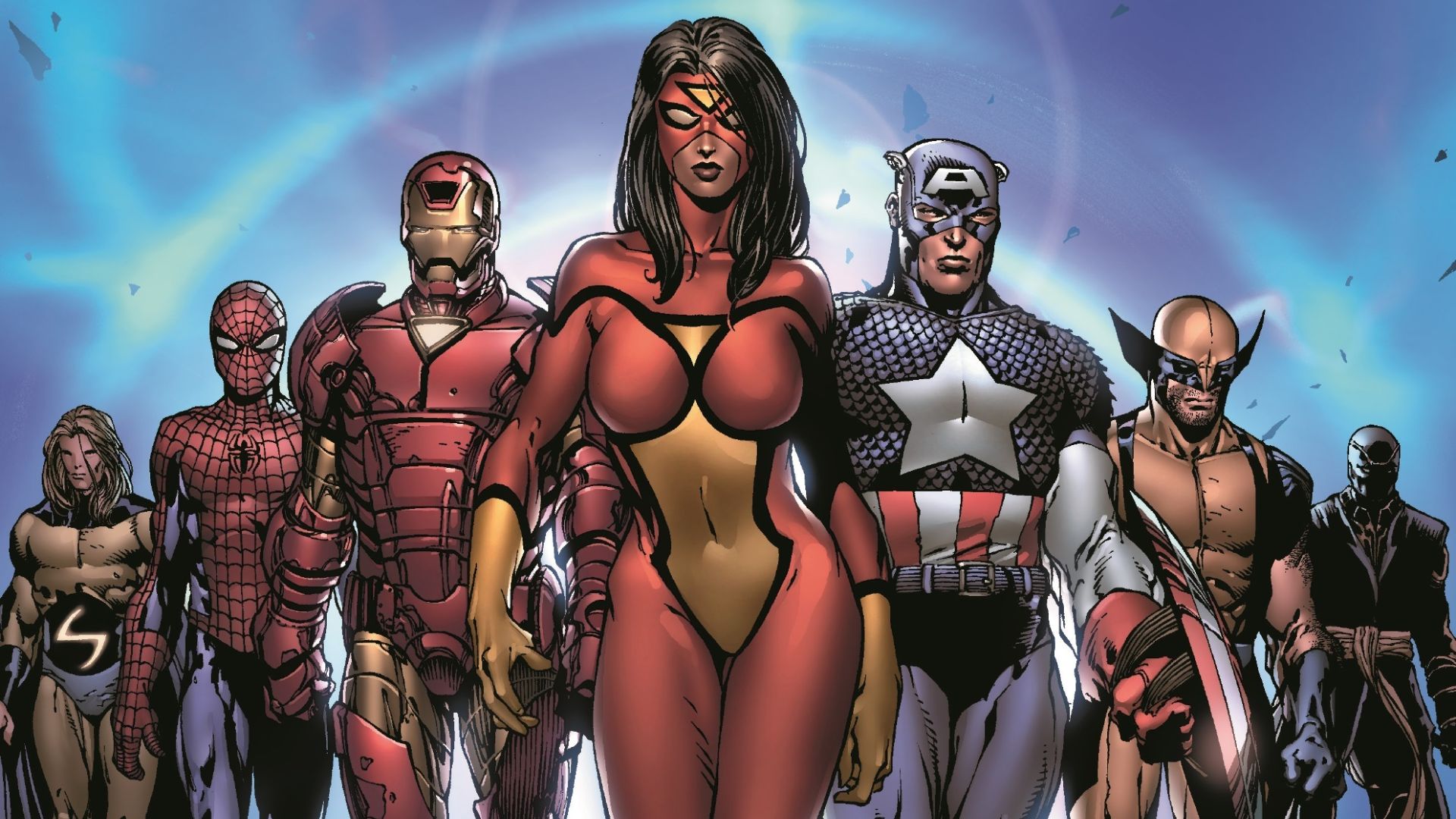
"You know, I think about it an awful lot, about what makes the Avengers unique among all the other superhero teams," Bendis said. "Fantastic Four is a family, and the X-Men are all related by a similar cause. But the Avengers are there because they all believe in the same thing."
That belief, Bendis said, is that there needs to be a group that stands together to fight the foes the members can't fight individually.
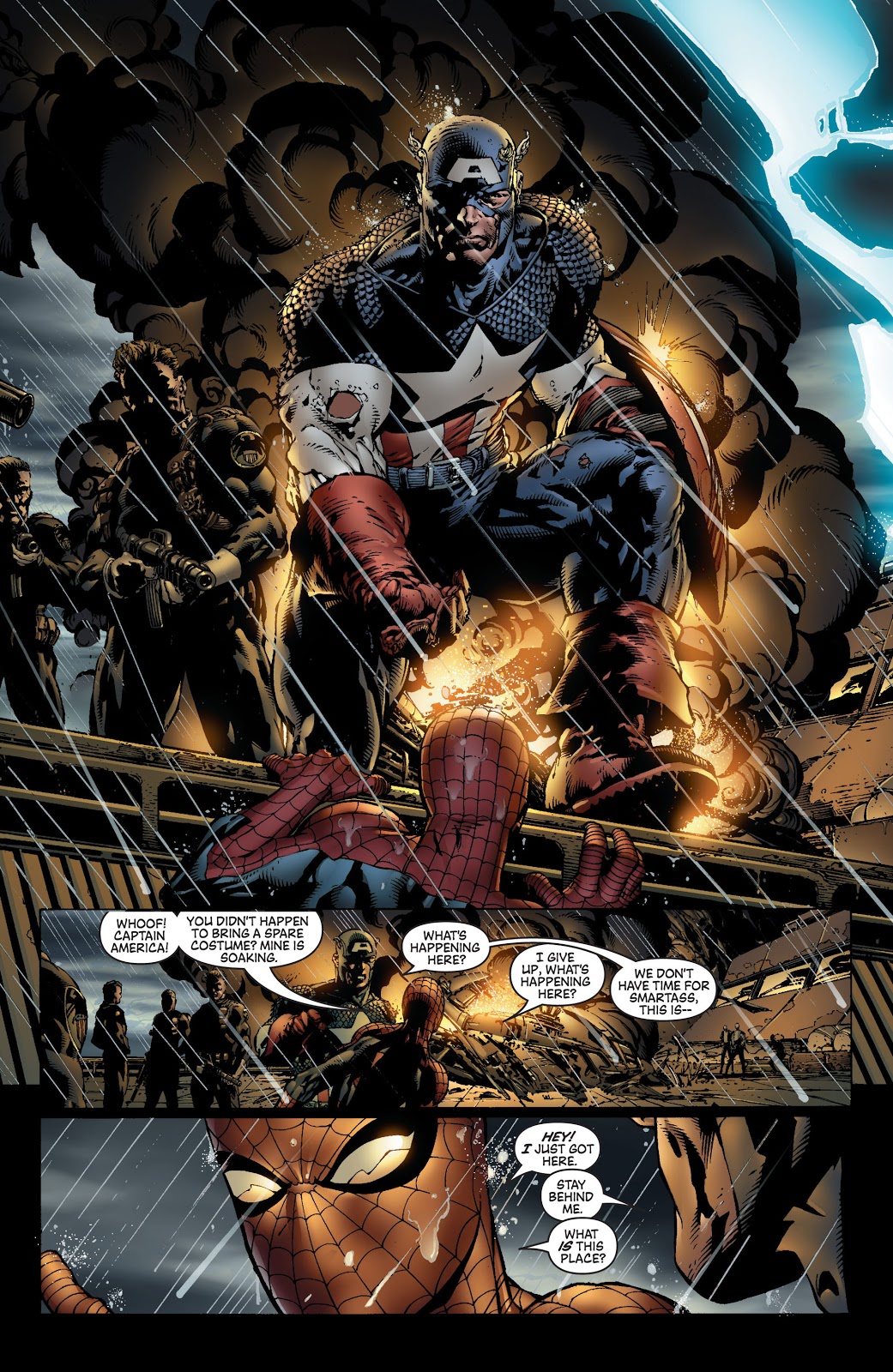
"Captain America believes in the idea in the Avengers. Tony Stark believes in it so much that he's willing to pay for it. Thor believes in it so much that he's willing to hang out with these guys," he said.
"When I sit down and write them, I just remember the initial pitch: Heroes banded together to fight foes they couldn't fight on their own. And you don't get any more complicated than that," Bendis said. "And I think the writers who have stuck to that have created some really unique Marvel stories."
Bendis, last year ended a run writing DC's Justice League ongoing series, said that it's an honor to be asked to be a part of the Justice League or Avengers rosters - as a team member, but also as a writer or artist.
"It's much like when ballplayers get asked to be in the Yankees," he said. "Or I know a lot of my friends when they're asked to write for DC or Marvel Comics, they feel like an honor's been bestowed upon them and they have to deliver. I see people like Clint Barton respond to the Avengers like that."
Avengers ≠ Justice League
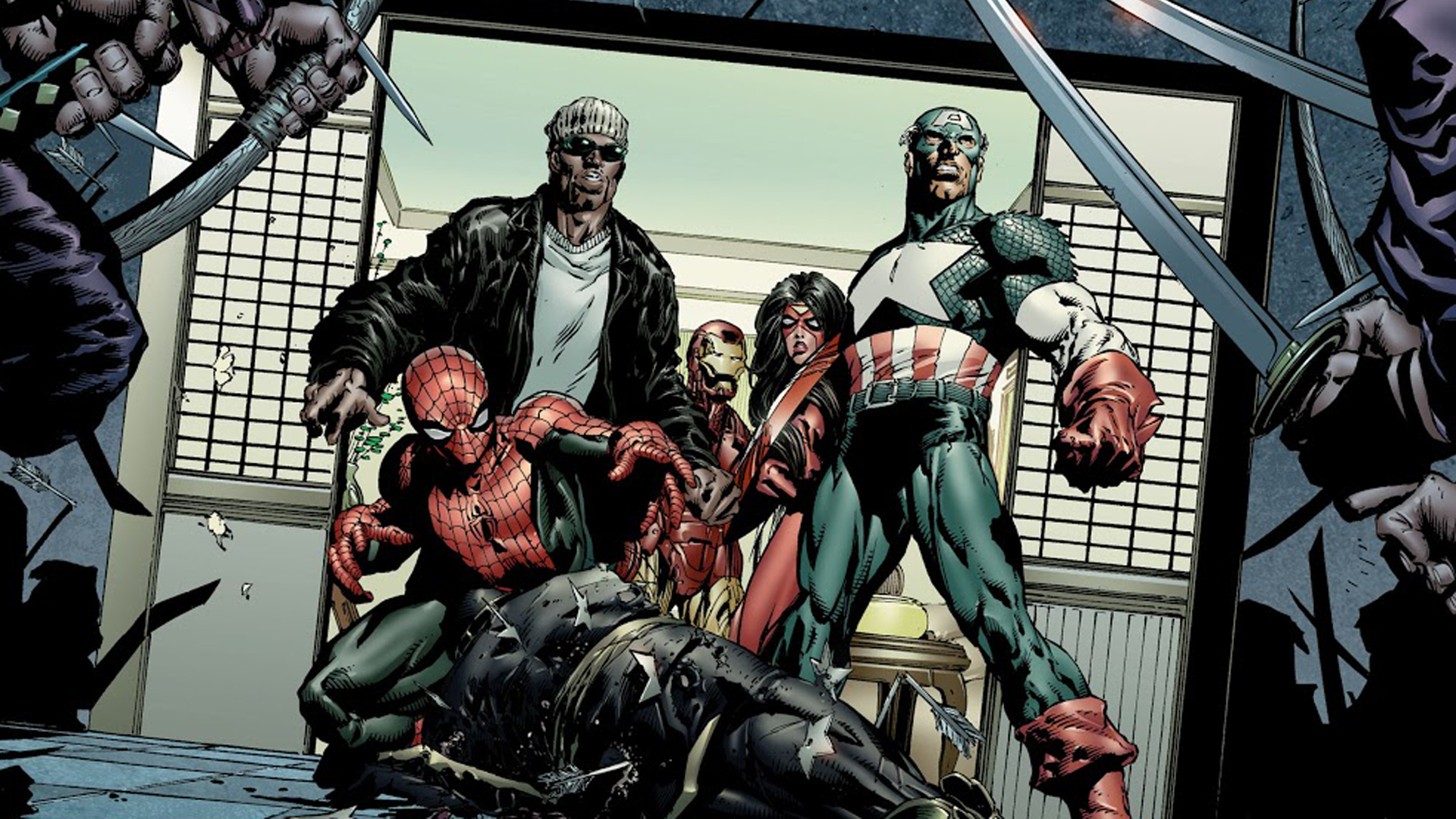
However, there are a few differences between the Justice League and the Avengers, including what former Avengers writer Kurt Busiek calls the distinction between the word "league" and the word "team."
"Classically, at least, the Justice League of America was a league and the Avengers was a team," Busiek said, "by which I mean that the Justice League of America was an alliance of solo heroes who came together as needed, but whose first priority was their solo responsibilities, the various cities they protected in the ordinary course of their careers. And the Avengers was a team, one that focused primarily on working together (and often living together) with a few members who had solo responsibilities, but not the bulk of the team."
Marvel Comics' executive editor/senior VP of publishing Tom Brevoort agreed, adding that the Justice League's focus is getting the job done while the Avengers comics tend to focus on the group's relationship as a team.
"Typically, there's a crisis in the world, the Justice League comes together in the (pick one) satellite, moon base, cave in Rhode Island, then they deal with the mission, pat each other on the back and go home, whereas the Avengers tend to all stay more or less together," said Brevoort, who has overseen the Avengers titles for over 20 years.
"There are guys that come and go – Cap's not there all the time, and Iron Man usually isn't there all the time – but they tend to congregate in one place, whether that's a mansion or a tower or an apartment in Brooklyn. It seems to be a lot more about the personal interplay and the relationships between those characters than it is simply the big mission of the day.
"The Avengers somehow, in some intangible way, is closer to a sports team in that sort of way. They live together, they work together, they fight together," Brevoort said. "This is just my opinion, but the Justice League is sort of more like a lodge where once a week they get together and have a meeting and eat some ribs and punch the Injustice Gang out. On its most basic level, it's the same kind of concept. It's all your big characters together in one comic or on one team."
Slott, who currently writes Marvel's Fantastic Four team, said what really makes the Avengers unique is what makes the Marvel Universe itself unique.
"Marvel books have a certain feel to them. It's the magic of Stan and Jack," he said, referring to Stan Lee and Jack Kirby. "If you look at Justice League, you get this feeling like, if suddenly someone turned out the lights, if the characters didn't say something like 'Great Krypton' or 'Great Hera' you wouldn't know who was speaking, because they're all these perfect icons. Each person is a very quintessential hero. In the Marvel universe, they aren't untouchable icons. These guys have more flavor and feel more familiar and down-to-earth.
"Also, Rick Jones could kick Snapper Carr's ass," he laughed.
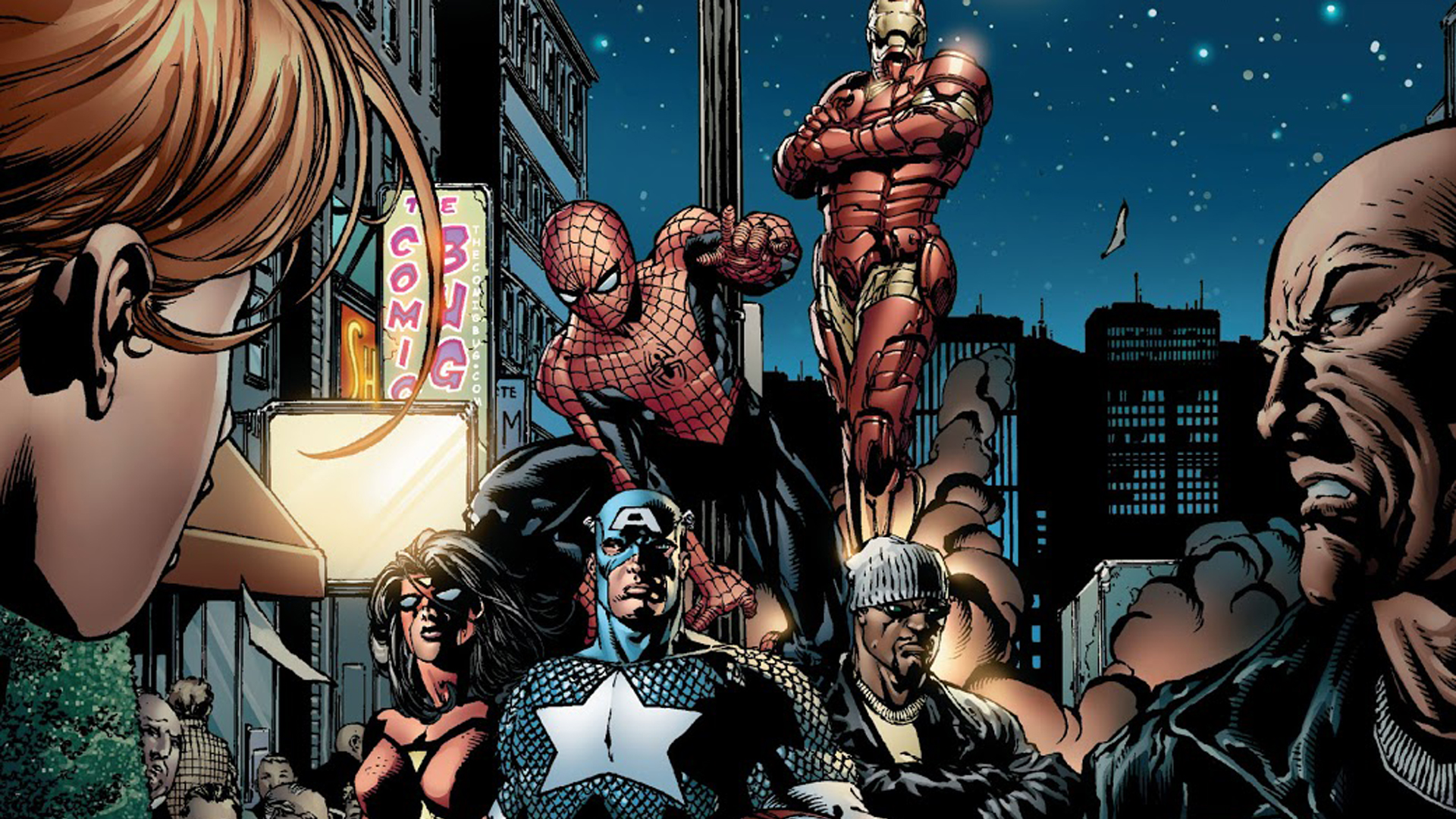
Brevoort, who has been working for Marvel since 1989, says that in many ways it comes down to how an all-star superhero team is approached as a writer and artist. Although best known for his work at Marvel, Brevoort is a long-time DC fan as well.
"I think the difference is in approach more than anything," Brevoort added. "The Marvel style is that it's the guys in the costumes rather than the costumes and the powers that are important; the classic DC style was always that it's the costumes and the powers that are important."
Bendis said the two teams do have similarities, which is why he's drawn to them.
"It just seems to be a never-ending amount of different types of stories you can tell from that simple idea of banding these heroes together."
Make sure you've read the best Avengers stories of all time.
Vaneta has been a freelance writer for Newsarama for over 17 years, covering Marvel and DC, and everything in between. She also works in marketing.


